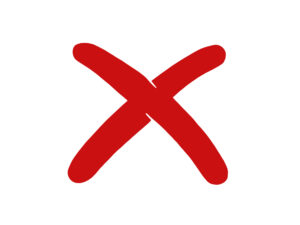How ethical is Boohoo?
The Good Shopping Guide gives Boohoo, an online fast fashion brand owned by Debenhams Group PLC, a low Ethical Rating. Unfortunately, this brand receives a Good Shopping Guide Ethical Score in our Ethical Fashion Retailers Ratings Table and has not yet met our minimum Ethical Benchmark.
Find out more about the ethical issues with fast fashion in our article on the Fashion sector.
In what areas does Boohoo perform poorly for its sustainability and ethics?
As a fast fashion brand, Boohoo scores particularly badly in most of our research criteria for the Environment, Animals and People.
Products from several of Debenham’s subsidiaries (eg. Burton, Dorothy Perkins, Nasty Gal) are advertised as being made entirely of organic cotton, however, there is no certification to back this up. Certification ensures that cotton, one of the “dirtiest crops,” was not grown in a way that endangered farmers, local ecosystems, animals, or cotton producers. Boohoo was therefore given a very low score for our Organic criteria.
PETA has also criticised Boohoo for its use of wool in its products. Following this criticism, Boohoo came out to the media claiming that it would not sell wool products in its online stores. However, this article also attests that Boohoo revoked this promise after pushback from sheep farmers. Vegans may want to avoid Boohoo, as its products might still contain wool.
Boohoo’s track record with animal welfare infringements doesn’t improve much from there; Boohoo received criticism for marketing actual fur—likely from a rabbit—as faux fur. Not only is this killing animals merely for fashion, but it’s also lying to customers. This is another reason why vegans, vegetarians or anyone concerned about animal welfare may want to give this brand a miss until it has improved its standards and begun to move towards our Ethical Accreditation! For these incidents, Boohoo has not received a good score from us for its Animal Welfare policies.
In what areas of ethics and sustainability does Boohoo perform well?
Boohoo also has a thorough Code of Conduct; this kind of documentation means that both consumers and investors can hold companies to account, and see which brands are planning for a sustainable future. See Boohoo’s Code of Conduct here.
How can the Boohoo brand improve its Ethical Rating?
The Good Shopping Guide’s score results from 15 ethical criteria in relation to Boohoo. To reach our ethical benchmark and qualify for our Ethical Accreditation, Boohoo has several issues to deal with, including its poor Animal Welfare track record and its violation of Human Rights.
If your fashion brand values ethics and sustainability, why not check out The Good Shopping Guide’s Ethical Accreditation? Increase customer and investor confidence and stand out from the greenwash.
Ethical performance in category
GSG score
GSG category benchmark
Ethical Rating
Environment
-
Environmental Report
Good
-
Organic
Poor
-
Better Cotton Initiative
Good
-
Fossil Fuels
Good
Animal
-
Animal Welfare
Poor
People
-
Armaments
Good
-
Code of Conduct
Good
-
Political Donations
Good
-
Ethical Trading Schemes
Poor
-
Human Rights
Poor
-
Human Rights+
Poor
Other
-
Ethical Accreditation
Poor
-
Other Criticisms
Poor
-
Other Criticisms+
Poor
= GSG Top Rating = GSG Middle Rating = GSG Bottom Rating
